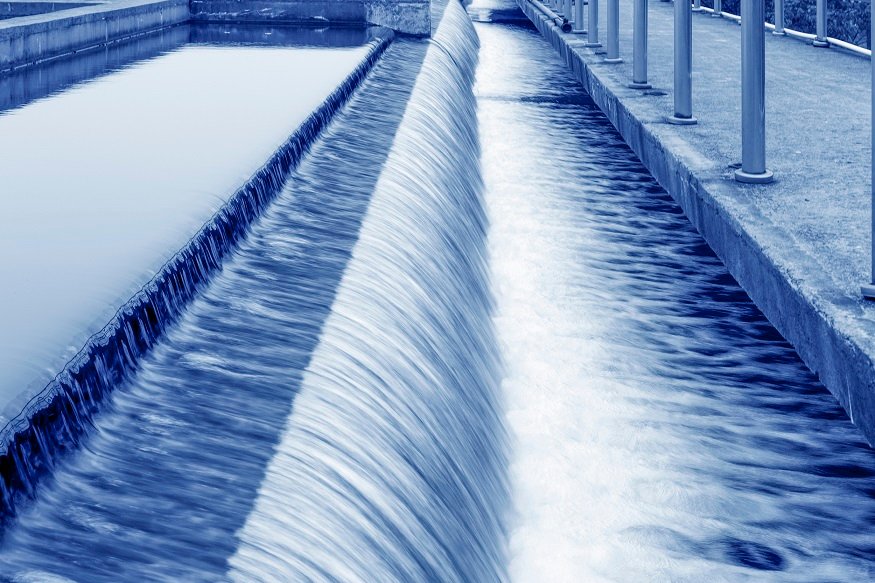On December 28, 2023, Singapore promulgated the Public Utilities (Water Supply) (Amendment) Regulations 2023, which specify the effective date of the Public Utilities (Amendment) Act 2023 (Commencement) Notification 2023 (hereinafter referred to as the Act), which stipulates the obligation to recycle wastewater for new plants, and the detailed requirements for the recycling obligations. Also, on the same day, the “Sewerage and Drainage (Industrial Wastewater) (Amendment) Regulations 2023” were promulgated to amend the fees related to the discharge of pollutants into the sewerage system. The Act and the two regulations promulgated at this time both came into effect on January 1, 2024.
The original text of the regulations can be viewed at the following URLs:
- Public Utilities (Amendment) Act 2023 (Commencement) Notification 2023
https://sso.agc.gov.sg/SL-Supp/S902-2023/Published/20231228?DocDate=20231228&WholeDoc=1 - Public Utilities (Water Supply) (Amendment) Regulations 2023
https://sso.agc.gov.sg/SL-Supp/S904-2023/Published/20231228?DocDate=20231228&WholeDoc=1 - Sewerage and Drainage (Trade Effluent) (Amendment) Regulations 2023
https://sso.agc.gov.sg/SL-Supp/S911-2023/Published/20231228?DocDate=20231228&WholeDoc=1
Public Utilities (Amendment) Act 2023 (Commencement) Notification 2023
Stipulates that this Act shall come into effect on January 1, 2024, including Article 12, which stipulates the water efficiency requirements of new facilities (including the obligation to recycle wastewater) (excluding Articles 5, 8, 15, and 22 (1)).
The original text of the Public Utilities (Amendment) Act 2023 is as follows.
https://sso.agc.gov.sg/Acts-Supp/27-2023/Published/20230918?DocDate=20230918&WholeDoc=1
Public Utilities (Water Supply) (Amendment) Regulations 2023
Amends the Public Works (Water Supply) Regulations and stipulates the water efficiency requirements for new facilities based on the Act. According to the Act, the following new facilities *1 are subject to water efficiency requirements.
- Belonging to a particular industry and being constructed/constructed for the purpose of carrying out business activities using water; and
- Annual water consumption will be above a predetermined threshold due to its operation
*1 Buildings or structures that apply for planning permission and approval of construction plans after January 1, 2024, including the expansion of existing facilities.
The regulations specifically stipulate the above “specific industries” and “predetermined thresholds”, as well as the corresponding water efficiency requirements. The “predetermined threshold” is 60,000 m3, and the determination of annual water consumption must be in accordance with “PUB’s Stipulated Standard & Requirements on Mandatory Water Efficiency Requirements issued by PUB.
This document can be viewed at the following URL:
https://www.pub.gov.sg/-/media/PUB/Public/WaterLoop/Water-Conservation/Mandatory-Water-Efficiency-Requirements/PUB-SR-for-Mandatory-Water-Efficiency-Requirements.pdf
The “specific industries” and predetermined water efficiency requirements are as follows:
| Specific industries | Predetermined water efficiency requirements |
|---|---|
| 1. Biomedical and Pharmaceutical | |
| (1) Manufacture of cells, tissues, and gene therapy products | Recycling of all specified wastewater *2 |
| (2) Manufacture of contact lenses | |
| (3) Manufacture of cosmetics | |
| (4) Manufacture of medical devices | |
| (5) Manufacture of medicinal oil or balm | |
| (6) Manufacture of dental oral gum | |
| (7) Manufacture of quasi-drugs | |
| (8) Manufacture of therapeutic products | |
| 2. Electronics | |
| (1) Manufacture of electronic products or components such as batteries, capacitors, displays/screens, hard disks, printed circuit boards, sensors, etc. | Recycling of all specified wastewater *2 |
| (2) Manufacture of semiconductor products such as diodes, radio frequency filters, and photomasks | |
| (3) Manufacture of semiconductor wafers from ingots | |
| (4) Inspection and assembly of semiconductor chips | |
| 3. Wafer Manufacturing | |
| (1) Pre-processing of semiconductor circuits from blank wafers (from start of production until the stage before individual semiconductor circuits are separated from blank wafers) | Achieve recycling rate *3 of 50% or more |
| (2) Pre-processing of semiconductor wafers from blank wafers (from the start of production until the stage before individual semiconductor wafers are separated from blank wafers) | |
*2 Specified drainage refers to the reject flow generated from any of the following processes:
(a) Precision filtration
(b) Ultrafiltration
(c) Electrical deionization
(d) Reverse osmosis
*3 Recycling rate is also specified in “PUB’s Stipulated Standard & Requirements on Mandatory Water Efficiency Requirements”.
The above water efficiency requirements are applied to each year that meets the following requirements.
- The year is the fourth year after obtaining the temporary occupancy permit for the new facility based on Article 12 (3) of the Building Management Act of 1989
- The occupier of the new facility is a qualified consumer of the new facility in a certain year *4
*4 If there is a year in which the annual water consumption has exceeded 60,000 m3 in the past three years, the occupier will be a qualified consumer in the next year.
In addition, these Rules also stipulate methods for applying for approval of water balance forecasts before the construction of new facilities.
The Public Utilities (Water Supply) Regulations, including this amendment, can be viewed at the following URL:
https://sso.agc.gov.sg/SL/PUA2001-RG5?DocDate=20231228&WholeDoc=1
Sewage and Drainage (Industrial Wastewater) (Amendment) Regulations 2023
Amendment to Article 11 (6) of the Sewerage and Wastewater (Trade Effluent) Regulations, revising the fee that a person who discharges trade effluent with a BOD or TSS of 400 mg/L or a COD of more than 600 mg/L into a public sewer must pay to PUB as the treatment cost.
The Sewerage and Drainage (Trade Effluent) Regulations, including the current revision, can be viewed at the following URL:
https://sso.agc.gov.sg/SL/SDA1999-RG5?DocDate=20231228&WholeDoc=1
 Singapore promulgates regulations that specifies detailed requirements for wastewater recycling obligations
Singapore promulgates regulations that specifies detailed requirements for wastewater recycling obligations 

























